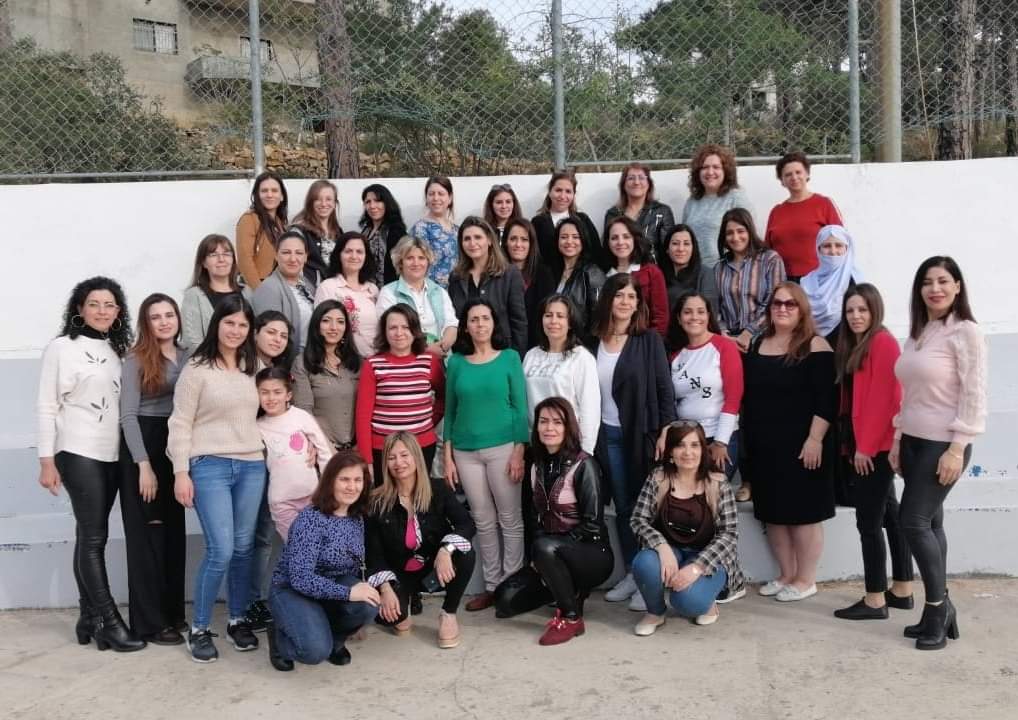Project Context
Al Manar Modern School (AMS) is the first school in its area to dedicate itself to serving a body of students with different abilities. This is inclusive of students who are born with or develop learning difficulties (ADHD, autism and dyslexia among others), as well as the social, emotional and learning development compromised during the COVID-19 pandemic and exacerbated economic state of Lebanon.
Over the years, the school has been working to foster an inclusive environment for its students, where they can comfortably and safely progress on their educational journey, despite their unique differences. Their classrooms are mixed with students of different abilities, reinforcing the potential of their development into engaged learners and citizens.
While this is a service typically afforded to wealthier schools in Lebanon, this school is providing quality, tailored learning for minimal tuition fees. The parents of children who struggle with traditional learning methods are drawn to enroll them in AMS.
Registration of students with learning difficulties has increased by 49 students in the 2022-2023 academic year, poising them to be special education leaders in the Ras el Matn area.
Project Description
When assessing AMS’s priority area for its nafda project, STEM/STEAM was of great interest to community members but ultimately, they decided that Inclusive & Equitable Learning is a prerequisite they need to address. A survey even showed that the highest-ranking criteria was for students to feel safe in their learning environment.
AMS launched its Learning Difficulties Center with the guidance of nafda education coaches and our partner, the Learning Difficulties Professional Association (LDPA). The project was designed and implemented using methodologies provided by our coaches, who have been following the journey at every stage.
The LDPA provided a Training of Teachers (ToT) series on fostering an environment that caters to students’ special needs. By learning the process of Differentiated Instruction (delivering content based on students’ interests and abilities), the nafda project team at AMS created Individualized Education Plans for each of their students. This includes adopting and contextualizing lessons for better comprehension and retention, as well as teaching through media like videos, design, music, etc.
Despite the crippling economic conditions, several teachers who were planning to quit their jobs not only stayed, but are dedicating time to advance the Learning Difficulties Center after classes and on weekends. Considering their increased qualification through certification, compensation for additional lessons and attraction of new students, they see their time spent as an investment in themselves and their school.

This photo is inclusive of members of the AMS community and Parents’ Committee, teachers who trained on Differentiated Instruction and those who became special education instructors
Achievements to Date
- Over 50% of students have increased performance, including those with learning difficulties succeeding at the official government exams
- Incidents of bullying have decreased
- Parents are increasingly willing to accept their children’s special needs and to seek support
- A collective perspective towards the normality of special needs is developing
- 25 out of 45 students with special needs attended therapy sessions on weekends
- AMS now hosts 10 special education experts
The Human Heartbeat
The case of one student, Samar*, tells the story of the transformation taking place in the school.
For years at Samar’s old school, she placed as one of the strongest students in her class, both in scores and in character. When a tumor was discovered in her brain, she had to undergo multiple surgeries and CBT treatment. She sank into depression and began exhibiting hyperactive behavior, sometimes talking and leaving class at arbitrary times. She began to experience continuous bouts of bullying that prompted her transfer to AMS, where the thought of students not belonging is not accepted.
At first, AMS teachers would have to remove her from the classroom because they couldn’t control her behavior. When they underwent training, however, they adapted their lesson delivery: dedicating a room for her to rest and return to class, sending her PDFs and presentations to focus better in class, supporting her with formula sheets during exams. Samar’s classmates and teachers began to understand and approach her with patience and acceptance.
“When she solves exam exercises, teachers can see that she’s a smart kid. She just needs to feel supported. Her grades increased 5 points out of 20 throughout the project, and everyone can see that both she and her teachers feel more relaxed.”
*the student’s identity was altered in order to respect their privacy
